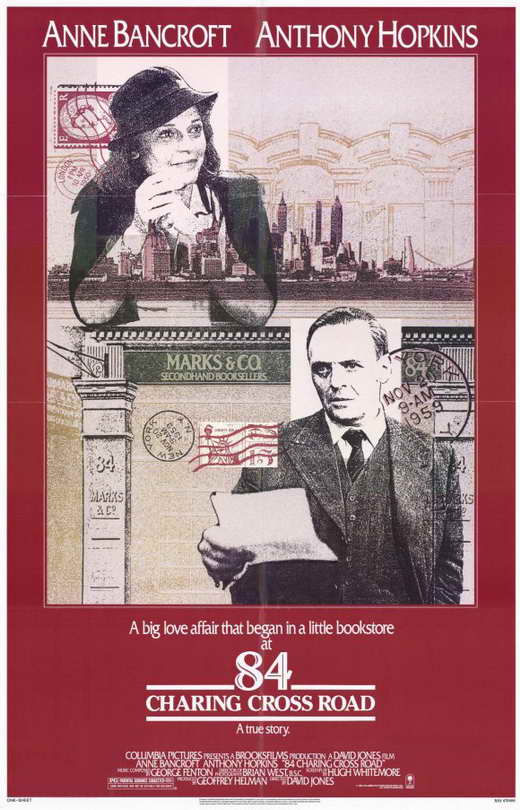This charming little film tells the story of Helene Hanff (Bancroft), a native New Yorker who loved literature. In the early post war period it wasn't as easy as it is now to find the classics of literature. Helene had trouble locating titles she wanted until she saw a small ad for a London bookstore specializing in obscure and antiquated books. In part, due to her gregarious nature and part due to her skill at writing, she developed a friendship with the staff at the store, exchanging care packages to make up for the post-war food shortages in England and buying many different volumes of English literature. The particular manager with whom she developed the closest rapport was Frank Doel (Hopkins). Their correspondence was a warm and important one in each of their lives, chronicling the changes that occurred to them personally and in the world at large from 1949 until his death in 1968.
This film faithfully recreates the unique relationships and is a lovely portrait of the two cities during those times. Also look for Judy Dench as Doel's wife and Mercedes Ruehl as a friend of Helene's.
Obscurity factor: 2 (on DVD, well loved by fans, unknown to a large portion of the population)

I remember reading that the movie rights to the book were an anniversary present from Mel Brooks to Anne Bancroft. Mel Brooks is the producer of the movie. My wife and I went to see it, and a Helene Hanff craze followed. All her books are wonderful, hilarious and touching (see "Underfoot in Show Business" in particular).
ReplyDeleteThe movie is enjoyable, but uneven, as Bancroft is supposed to age rapidly from the 1940s to the 1970s. With many hairdos to help us make sense of the time lapses, she overpowers the material: it's like a natural Phaedra playing My Sister Eileen at times. If I may, I'd say she overpowers the material not by being "heavy," but because we can detect the enormous effort to be "light." What remains most vivid is the fine photography, and the detail about food restriction in post-WWII Britain.
I love your description of the performance as Phaedra playing My Sister Eileen! It's very apt. I agree, though it didn't diminish my enjoyment of the film.
ReplyDelete